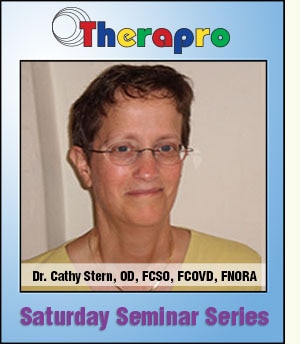
We anticipated an energizing 4 days in Chicago at the 2016 AOTA Annual Conference & Expo! Therapro director and owner, Karen Conrad Weihrauch, ScD, OTR/L was happy to be back in familiar territory, having received her OT degree at the University of Illinois. The Therapro team of 5 occupational therapists, lead by Karen, convened at the Expo Hall on Wednesday afternoon, rolled up our sleeves and got to work setting up our massive, colorful exhibit. Karen, Bhanu, Ginger, and Linda, and I functioned like a well-oiled machine, constructing the display and stocking the shelves with all our latest and greatest products.
We were ready for the onslaught of 10,000 attendees when the Expo opened on Thursday evening. Our booth was a very popular stop, situated near the point of entry to the exhibit hall. Imagine streams of people strolling through the exhibit hall, pausing to visit our booth. We introduced several brand new editions of our publications: Drive -Thru Menus and Fine Motor Olympics, which sold out quickly! Attendees were happy to consult with the Therapro therapists about products and their use.
Ginger and Bhanu were on hand to talk about their publication, Self-Care with Flair. Their Therapro-sponsored seminar on the Expo Hall floor on Friday afternoon was very well received! Authors, Carolyn Murray-Slutsky, MS, OTR, C/NDT and Betty A. Paris, PT, MEd, C/NDT, along with Carolyn’s husband, Herman, shared our booth. Their publications: Autism Interventions, Is It Sensory or Is It Behavior?, DTI: Laminated Card Series – Sensory Modulation & Positive Behavioral Strategies, and the new Sleep ‘N Sync materials, were very popular.
Therapists were thrilled to be able to examine and play games with us from our “Games Corner,” a few of which included:
Other products therapists clamored for were:
Here are just a few friends who stopped by the Therapro exhibit to say “hello”:
- Teresa May-Benson, ScD, OTR/L, FAOTA, Executive Director of the Spiral Foundation
- Mary Schiavoni, MS, CCC-SLP, Inventor/Designer of Chewy Tubes
- Fred Sammons, PhD (Hon), OT, FAOTA, former owner of Sammons, Inc., now called Patterson Medical
- Jeanne Zobel-Lachiusa, EdD, OTR/L and Lucindy Napoli, MOT, OTR/L, Faculty members at Bay Path University
- Sharon Ray, ScD, OTR/L, Faculty member at Stony Brook University. She and Karen Conrad Weihrauch were colleagues when attending Boston University for their advanced occupational therapy degrees
- OT students from Bay Path University, Ithaca College, and Utica College
- Former students of Karen when she taught at the University of Wisconsin in Milwaukee
Our exhilarating 4 days at the outstanding AOTA Conference & Expo left us with great memories and pride. The experience reinforced our commitment to being occupational therapists that tirelessly seek knowledge to better serve our patients/students/clients. Meeting therapists from across the globe with similar concerns and common practices, and sharing ideas with them was an incredible experience. Hearing therapists exclaim over and over again – “We love Therapro!” – made us feel like we’re doing something right!
Filomena Connor, MS, OTR/L

